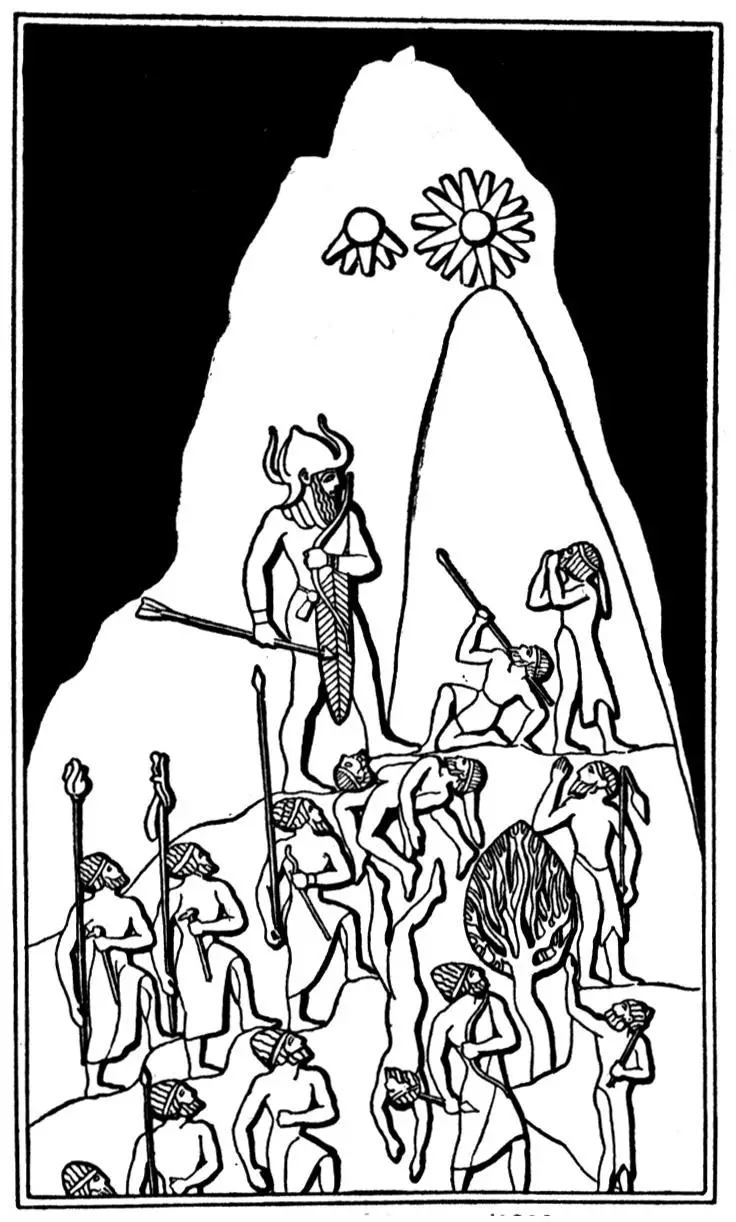Akkadian Empire
Background
While the Sumerians occupied the south of Mesopotamia, the Akkadian Empire began in the north. The Sumerians and the Akkadians did have a lot in common apart from their languages which were different. The Akkadians were able to unite all their city-states under one kingdom while the Sumerians maintained local rule at all of their locations. However, as was often the case in ancient Mesopotamia, the two tribes did not live beside one another in peace for very long and they soon came into conflict with each other.
- In around 2334 BC, Sargon, which means ‘true king’, seized power in the Mesopotamian city-state of Kish and declared himself as the new king.
- Sargon soon came into conflict with the Sumerian King Lugalzagesi of Uruk. Sargon defeated him, and he quickly gained control of the entire Sumer region of Mesopotamia.
- With Sumer now under his control, Sargon turned his attention to building a city at an already existing site in the north. The city was called Akkad and was located on the banks of the Euphrates River.

A new empire
- Akkad was at the heart of Sargon’s new empire, but he wanted to extend his power beyond Mesopotamia.
- King Sargon led a strong army of around 5400 men and triumphed in 34 battles. They did this through ruthless killing and the destruction of enemy cities.
- Sargon removed the leaders of the conquered cities and sent Akkadian governors to rule for him and his empire in around 65 different cities.
- Eventually, Sargon’s army had conquered large parts of the Middle East and reached as far as Asia Minor (Turkey).
- The new empire established by Sargon offered stability to his people and improved conditions. For instance, under Sargon and his successors, better farming methods were introduced, roads were built, trade increased, and there were many developments in science and culture.
- The Akkadian Empire oversaw the development of the world’s first postal system. As people wrote on clay, they used clay envelopes, making the letters very heavy. To open the letters people had to break the clay open.
- It is said that Sargon reigned for 56 years in total. After his death, Sargon’s reign was seen as a golden age and people looked upon him as though he had been a god.

Sargon’s successors
- Sargon’s son Rimush took over control of the empire after his father’s death. Rimush did not achieve the same status of his father and struggled to deal with many rebellions during his reign.
- Manishtusu, who was Sargon’s other son, became king and he ruled the empire for 15 years. He also struggled to hold the empire together, but established better long-distance trade and engaged in grand construction projects.

- Naram-Sin is regarded as the greatest leader of the Akkadian Empire. Naram-Sin was a tough leader who swiftly dealt with a series of rebellions across his land. This allowed him to rule effectively and the empire prospered under his reign.
- During his thirty-six years of leadership, the Akkadian Empire expanded its boundaries, going beyond the Persian Gulf and reaching as far as Egypt.
- Under Naram-Sin, trade also increased dramatically and the empire became wealthier. He expanded trade in every direction and reached as far as India.
- Despite his success, Naram-sin later became the subject of a legend in which he was accused of causing the eventual destruction of the Akkadian Empire. This was due to his disrespect of the gods who punished him.

End of the empire
- The final leader of the Akkadian Empire was Shar-Kali-Sharri. He had to deal with constant rebellions in a similar way to all his predecessors. However, he failed to put down these uprisings successfully and the empire started to crack.
- Shar-Kali-Sarri was at war with various tribes including the Gutians. The Gutians were a wild and barbaric tribe who swept across southern and central Mesopotamia and caused the collapse of the empire.
- The Gutians were not effective rulers in Mesopotamia. They did not know how to govern properly and the previous wealth and prosperity vanished. The canal network was neglected and famine and death soon hit the region. Mesopotamia had now entered a ‘dark age’.



